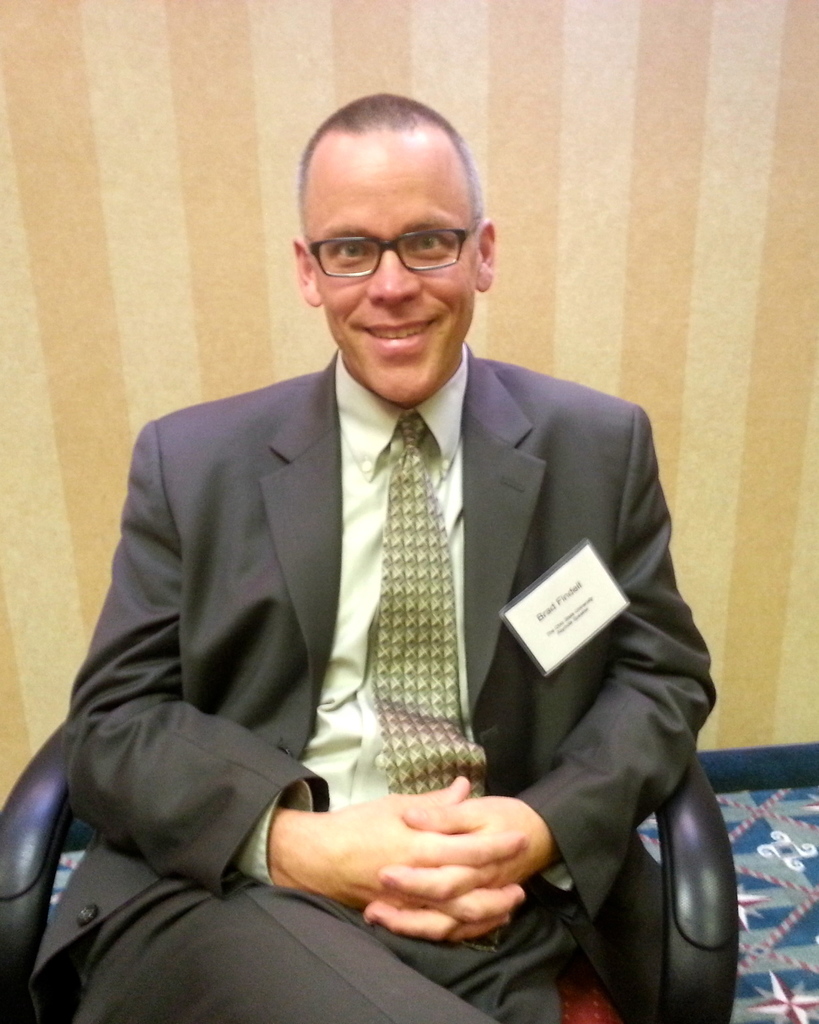One of the authors of the Common Core State Standards gave Idaho math teachers an inside glimpse into how the hotly-debated new principles came into existence.
Bradford Findell, associate director of Mathematics Teacher Education Programs at The Ohio State University, discussed implementation strategies during a professional development conference for math teachers held Aug. 1-2 in Boise.

Idaho Core Standards, the version of the Common Core that Idaho legislators adopted in 2011, will be in play statewide for the first time during the upcoming school year.
In 2009 Findell helped write the Common Core math standards with a working group made up of about 50 professors, teachers and education specialists. The group developed the standards based on consensus.
Then, a feedback group and a validation team of educators and academics vetted their work.
Those groups were convened by the National Governors Association Center for Best Practices and the Council of Chief State School Officers.
“We weren’t educating all students to the level we need to –– there was a huge difference from state-to-state and also differences from district-to-district and school-to-school and classroom-to-classroom within a school,” Findelll said.
“So in early 2009, a number of states got together and said ‘how about we try to work together and try to develop some common standards we can share,’” he continued.
Findell, who earned a doctorate in mathematics education, helped write academic standards in Georgia before drafting the Common Core.
“We didn’t start from scratch,” he said. “(In writing Common Core) it was a combination of standards of high achieving states and countries, research literature and expert judgment based on experience in the field.”
Findell’s message to Idaho math and algebra teachers stressed eliminating shortcuts from their curriculum.
“Strategies that attempt to remove thinking from learning and produce the right answers if (students) don’t understand them are bound to fail in the long run,” Findell said. “What we need to try to do is re-inject the thinking into what we are teaching.”
With the new standards, Findell said the goal is to improve teaching and learning by emphasizing key ideas and a thorough understanding of skills so students will be ready for college or careers without needing remediation.
Although the standards are considered by many to be more rigorous (Algebra lessons will be pushed forward a year from ninth grade to eighth grade, for example) Findell stresses the importance of developing an education progression to build upon and finding ways to help struggling students advance.
“With Common Core, ‘all students’ means all students in a way it hasn’t before,” Findell said. “Now, with students who are behind, we need to do things to help them catch up.”
When it comes to opposition to the standards, Findell said most of the backlash he has heard comes from two schools of thought.
“There are small numbers of people out there who are objecting to these standards, in some cases, because they think their standards are better,” Findell said. “In other cases, it’s because they object to standards and assessment of any kind. But I think it’s important to know these folks are in the small minority.”
In Idaho, opponents became organized this year and aired concerns during meetings of the Governor’s Task Force for Improving Education listening tour. Additionally, opposition has come from individual citizens, groups and some politicians.
Recently, a coalition including business professionals, the state’s two largest school districts and politicians has banded together in support of Idaho Core Standards.
Even though Findell’s work developing the standards is complete, Common Core is still a focus of his life.
“Of the folks on the writing team, work team and feedback group and validation committee, the vast majority of them are continuing to support final version of standards,” Findell said.
In his case, he helps students studying to be teachers at Ohio State prepare to teach the standards, and he leads regular professional development opportunities across the country.
Through his teaching, Findell stresses that standards don’t tie the hands of teachers or dictate curriculum or how educators interact with students.
“The standards are the goal,” he said. “The standards do not dictate how to teach.”
